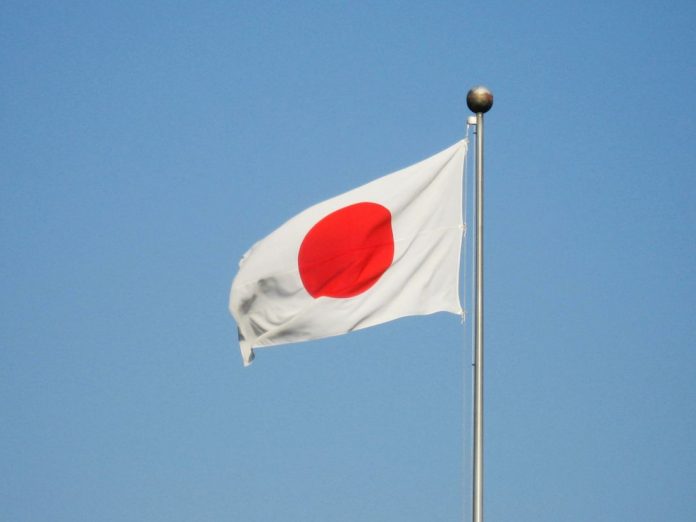Sino-Japanese relations have deteriorated in recent months following an escalation of China-U.S. rivalry. Four Chinese coast guard vessels entered waters of the Diaoyu/Senkaku Islands last month and it was already the 15th intrusion by Chinese ships this year.
In the face of such assertive Chinese behavior, Japanese Minister of Defense Tarō Kōno attended an online research meeting in July where he proposed his country to be a part of the “Five Eyes Alliance.” The United Kingdom responded to his suggestions and has publicly welcomed Japan. Will Japan become the sixth member of the alliance?
What is the “Five Eyes Alliance”?
The “Five Eyes Alliance” is an intelligence alliance comprising five English-speaking countries. Its formation was dated back in 1946 when the United States and the United Kingdom signed the “UK-US Communications Intelligence Agreement” (UKUSA). Later, Canada joined in 1948, and Australia and New Zealand in 1956. The alliance intends to safeguard the security and strategic interests of member states through the cooperation of intelligence agencies of member states.
The recent China-U.S. rivalry and the pandemic exposed the West’s over-reliance on China’s supply chain. The Five Eyes began to discuss joint resources and critical infrastructure development. In June, the defence ministers of the Five Eyes held a two-day video conference. They issued a joint statement to advance their defence and security cooperation and defend a rule-based global order. Meanwhile, expanding the alliance into a strategic-economic relationship, such as creating a free trade zone, is also under their consideration. Hence, the cooperation of the Five Eyes will no longer be restricted to intelligence sharing in the future, but will attempt to consolidate their position on other diplomatic and strategic aspects.
The Five Eyes are currently working together to uphold their values of democracy. For instance, four foreign ministers of the alliance issued a joint statement regarding the Hong Kong issue. They declared China’s imposition of the National Security Law violated the “One country, Two systems” framework. Measures including the suspension of the extradition treaty were formally adopted.
Why do the “Five Eyes” and Japan need each other?
First, joining this organization can further deepen Japan’s relations with the United States and its allies, despite their other bilateral or trilateral arrangements. For now, Japan has formed the “2+2” (diplomacy plus national security) dialogue mechanism with seven countries, including three countries in the Five Eyes. Moreover, some members already cooperate bilaterally and trilaterally with Japan in security aspects. For example, the U.S.-Japan Treaty of Mutual Cooperation and Security facilitates mutual defence obligations. Additionally, Japan signed an agreement for an intelligence sharing network with India, Australia and the UK this July and conducted training with two of these countries. Nonetheless, as compared to the bilateral treaties, the Five Eyes framework enables Japan to establish a more efficient, comprehensive intelligence-sharing structure with like-minded democratic countries.
Second, prospective incorporation in the Five Eyes would benefit Japan due to the geopolitical uncertainty. China’s rise and North Korea’s nuclear proliferation have been Japan’s grave security concern. For instance, Chinese military spending surged more than 7 percent in 2019 as compared to the preceding year, which was more than three times that of Japan’s. Meanwhile, North Korea landed a ballistic missile in the waters of Japan’s Exclusive Economic Zone (EEZ) in 2019 and fired Intermediate-Range Ballistic Missiles (IRBMs) over Japan on two occasions in 2017. Hence, regular intelligence sharing and monitoring against potential jeopardy from these two countries would offer Japan a crucial security assurance. Japan’s official involvement in the Five Eyes could also advance Tokyo’s security aspiration in the region. It is in concordance with Japanese policy of “Free and Open Indo-Pacific,” which seeks to exert Japan’s regional leadership and influence.
In addition to intelligence cooperation, the Five Eyes needs Japan to widen the alliance into a strategic-economic relationship. China accounts for 90 percent of the supply of rare earth elements. These are vital for every country to manufacture myriads of products, ranging from laptops, mobile phones to defence applications like satellites, lasers and missiles. Japan’s discovery of 16 million tons of rare earths near Nantori Island in 2018 is enough to make the country to be a suitable candidate for the alliance expansion. Members, especially the UK would be keen to form an economic partnership beyond the European Union and China amid the post-Brexit period.
The major hindrance for Japan’s formal inclusion would be Tokyo’s relatively underdeveloped intelligence-gathering capabilities. Hence, there could be a possibility of the leakage of some defense technologies via Japan. For instance, there was a suspected leak on Mitsubishi Electric Corp involving sensitive data about a high-speed prototype missile to defend Japan amid China’s military assertiveness. Despite such limitations, it does not affect Japan’s potential seat in the Five Eyes much. To respond against any sensitive cyberattack, Japan has already decided to form a “Cyber Protection Unit” inside the Ground Self-Defense Force and a “Cyber Information Gathering System” in this year’s defense budget. Therefore, Japan can soar as the “Sixth Eye” if it can enhance its counter-intelligence capabilities and illustrate its strength to handle processed assessments.
To Japan, the Five Eyes alliance is a sophisticated network that could further enhance the country’s intelligence-sharing capabilities on an extended range of areas in the face of regional uncertainty. The similarities of the current Five Eyes members are their Anglo-Saxon traditions and linguistic ties. However, incorporating Japan, which shares different culture and language, to be a part of the alliance shows the world their determination to partner with likeminded countries and together safeguard security in this fast-changing world.
Esther M. Sit holds a Master’s degree in International Politics and East Asia from the University of Warwick. The views and opinions expressed in this article are those of the author.


